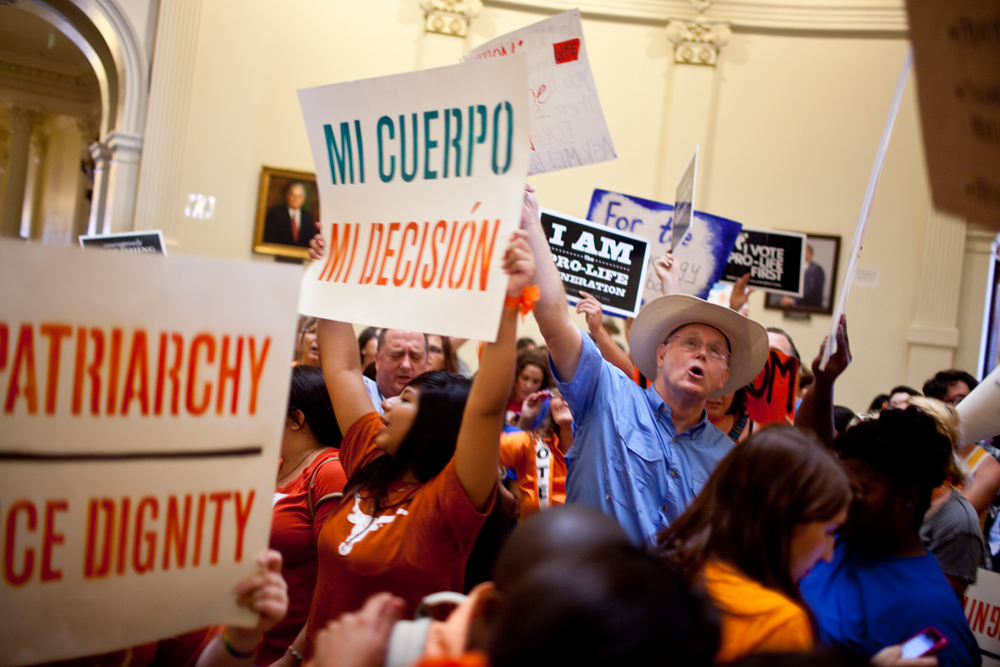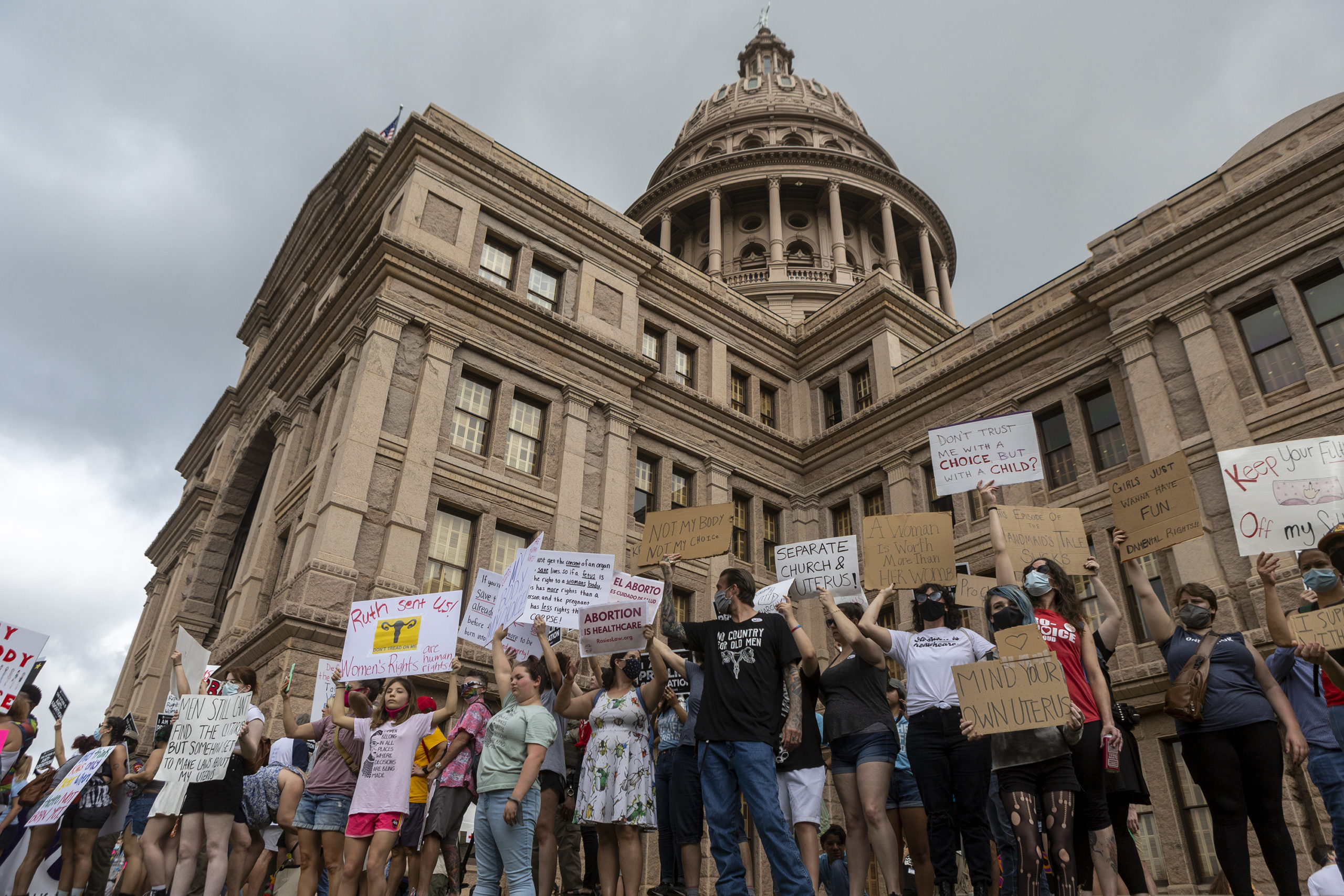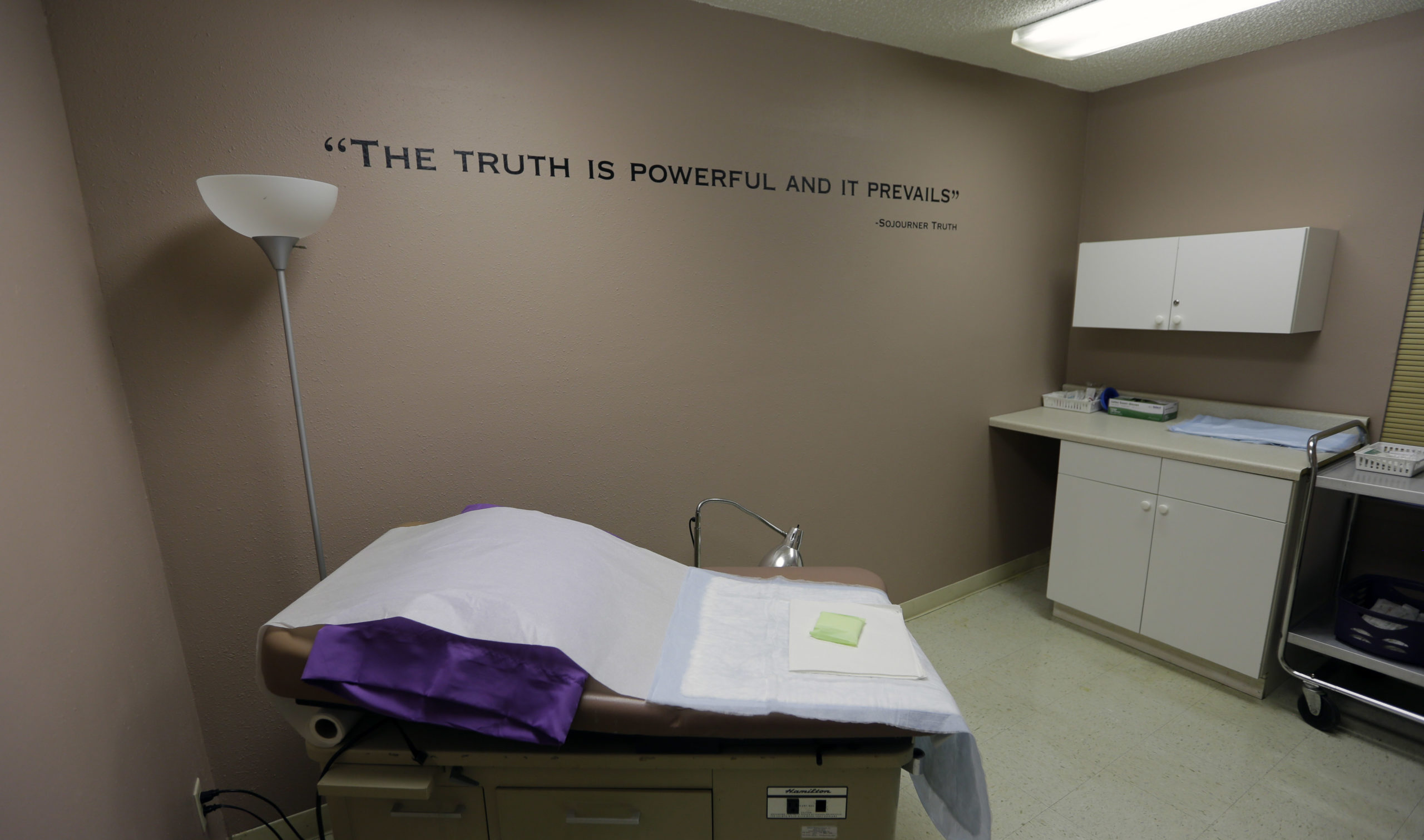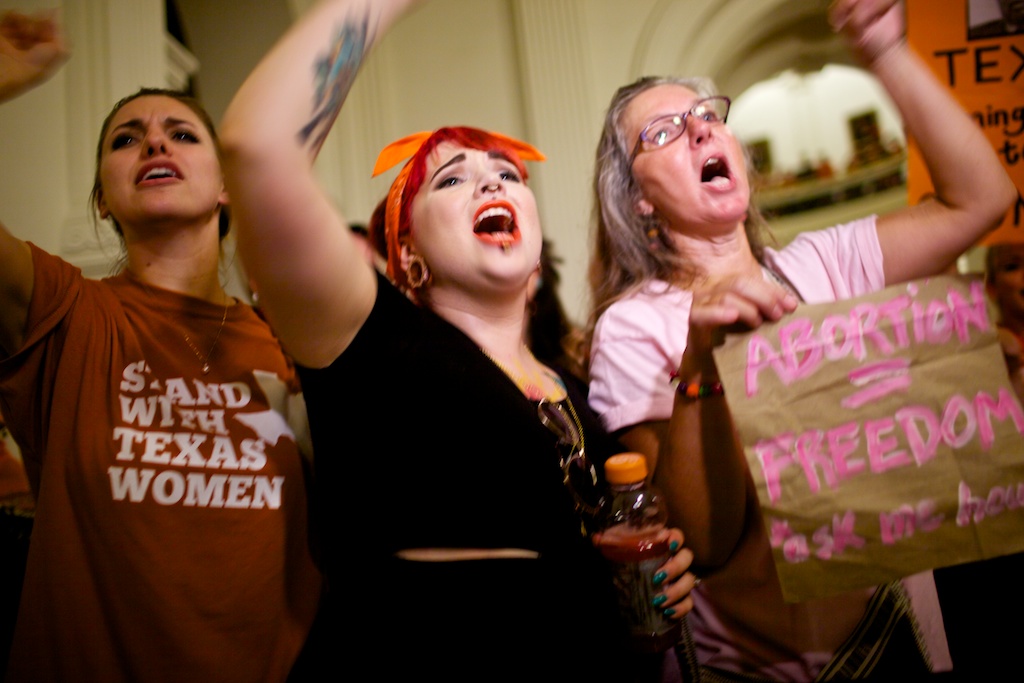
Supreme Court Blocks Texas Abortion Law For Now

Above: Pro-choice activists in orange chant and dance in the Capitol rotunda in June 2013 in protest of House Bill 2.
For the second time in less than a year, the U.S. Supreme Court has temporarily blocked two major components of Texas’ omnibus abortion law that would have forced all but nine abortion clinics in the state to close.
Now, the 19 remaining abortion clinics in Texas, including Whole Woman’s Health in McAllen, will stay open as plaintiffs in the legal challenge against House Bill 2 ask the high court to hear the case. Plaintiffs have 90 days to file a petition with the Supreme Court, and attorneys say they plan to do so this summer.
Whole Woman’s Health and other independent abortion providers are challenging the law’s requirements that physicians obtain admitting privileges at nearby hospitals and that clinics meet hospital-like ambulatory surgical center standards. The Supreme Court stepped in last fall to block those provisions as plaintiffs appealed the Fifth Circuit’s original decision to uphold the law.
“We’re relieved that the high court has, once again, prevented anti-choice politicians from pushing safe and affordable abortion care entirely out of reach for Texas women,” Amy Hagstrom Miller with Whole Woman’s Health said in a statement. “With today’s ruling, we remain hopeful that the justice system too will stand with Texas woman and Whole Woman’s Health.”
On June 9, a three-judge panel of the 5th U.S. Circuit Court of Appeals found that the law does not create an undue burden for Texas women, despite the fact that it would have closed all but nine abortion facilities statewide, leaving more than 900,000 Texas women living 150 miles or farther from a clinic. The panel also agreed that the Legislature’s intent was “to protect the health and safety of women,” not to erode abortion access, as plaintiffs argued.
In response to the 5th Circuit opinion, plaintiffs asked the Supreme Court on June 19 to step in.
Plaintiffs argue that the appellate court has largely ignored practical and economic barriers that Texans may face when forced to travel for abortions, such as child care, an inability to take time off work, transportation costs and the threat of arrest and deportation in the case of undocumented women. Internal border checkpoints, such as the Falfurrias checkpoint north of McAllen, pose insurmountable barriers to undocumented women living in the Rio Grande Valley who need to travel to San Antonio. Abortion rights advocates fear such women will turn to “unsafe, illegal” methods to induce their own abortions, said Paula Saldaña, a community health worker who has worked in the Rio Grande Valley for 20 years.
Losing the last abortion clinic in the lower Rio Grande Valley would take away “a safe, legal place to be able to obtain [abortion] services if they need them,” she said. “[Women] are going to put their lives at risk. They’re going to find a way.”
In her years as a health care educator, Saldaña has heard stories about women traveling to Mexico for injections to induce miscarriages, and others turning to herbal remedies.
“This [abortion services] should be accessible in my community,” Saldaña said. “We’re going to continue to fight.”
According to legal experts, the high court’s decision today to block the law from taking full effect means it will likely agree to hear the case against House Bill 2 in its next term, which begins this fall.
In a statement after today’s decision, Gov. Greg Abbott maintained that the law is designed to “to fight for higher-quality healthcare standards for women while protecting our most vulnerable—the unborn, and I’m confident the Supreme Court will ultimately uphold this law.”
Attorneys for abortion providers are hopeful that the high court will opt to review the law.
“This case presents a very, very dramatic impact in the type of restrictions on access to abortion clinics that we’ve seen over the last few years,” said Nancy Northup, president of the Center for Reproductive Rights. “If this case is not taken by the Supreme Court, it’s going to allow continuation of the closure of clinics.”


